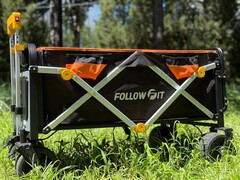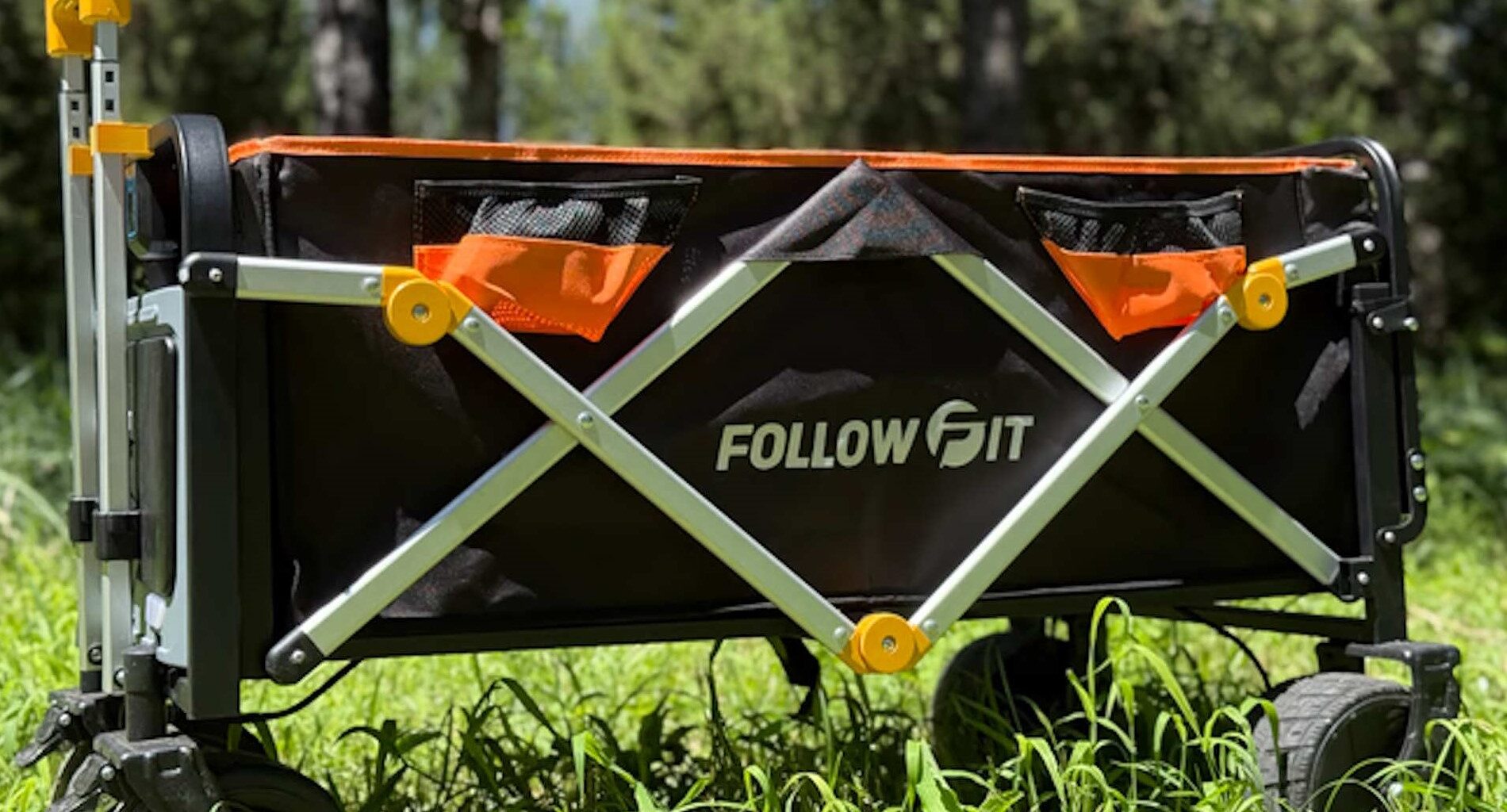 FollowFit: Motorised handcart with AI capability (Image source: FollowFit)
FollowFit: Motorised handcart with AI capability (Image source: FollowFit)
In a way, the FollowFit turns a fragment of Death Stranding into reality – minus the horror elements, thankfully. The AI-powered handcart can track users and help them haul heavier loads.
Beyond telling a complex story about mass extinctions, timefall and stillmothers, Death Stranding also showcases the use of futuristic technologies to transport goods. Currently seeking financial support through a crowdfunding campaign, the FollowFit is an advanced handcart designed to haul items – though it’s slightly more “down to earth” than carriers in the game. Driven by an electric motor, the cart can effortlessly move heavy or bulky objects.
In addition to a handle for precise navigation, the device comes with a remote control and can also operate semi-autonomously thanks to its built-in sensors. According to the manufacturer, the actual user-tracking capabilities are powered by a vision recognition system and an AI algorithm. The optical sensor is complemented by ultrasonic radars, allowing the FollowFit to navigate complex terrain, such as forested areas.
Weighing 16 kg (35.3 lb), the wagon features 165 mm wheels driven by a 200-watt motor and can carry loads of up to 100 kg (220 lb). Its capacity is expandable from 120 to 180 litres, depending on configuration. The detachable battery promises a range of up to 15 km (9.3 mi). With a top speed of around 3 to 5 km/h (1.9 to 3.1 mph), the FollowFit should be able to keep up with a person walking at a moderate pace. The electric handcart is currently available on Kickstarter at an early bird price of $399, though potential backers should be mindful of the inherent risks of crowdfunding campaigns and carefully review the shipping terms and conditions before purchasing.
I have been active as a journalist for over 10 years, most of it in the field of technology. I worked for Tom’s Hardware and ComputerBase, among others, and have been working for Notebookcheck since 2017. My current focus is particularly on mini PCs and single-board computers such as the Raspberry Pi – so in other words, compact systems with a lot of potential. In addition, I have a soft spot for all kinds of wearables, especially smartwatches. My main profession is as a laboratory engineer, which is why neither scientific contexts nor the interpretation of complex measurements are foreign to me.
 Translator: Zhiwei Zhuang – Translator – 435 articles published on Notebookcheck since 2022
Translator: Zhiwei Zhuang – Translator – 435 articles published on Notebookcheck since 2022
After graduating with a bachelor’s degree in environmental engineering, I moved from Singapore to
Cologne in 2014 and began pursuing a career as a freelance translator. Much of my translation work
focuses on science, engineering and technology. My fascination with computers and mobile
electronics began when I was young. And I have fond memories reading countless tech and gaming
magazines. Working with Notebookcheck gives me the opportunity to incorporate my personal
interests into my professional work.


